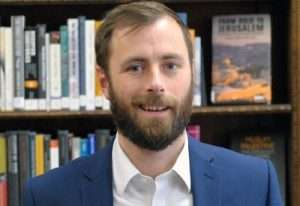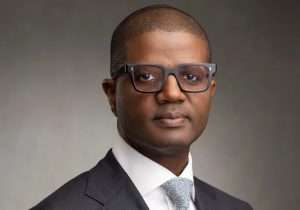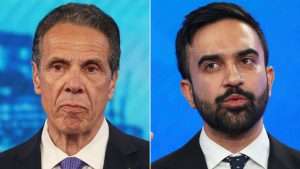Dr. Majid Rafizadeh: Building a Middle East-Africa growth axis
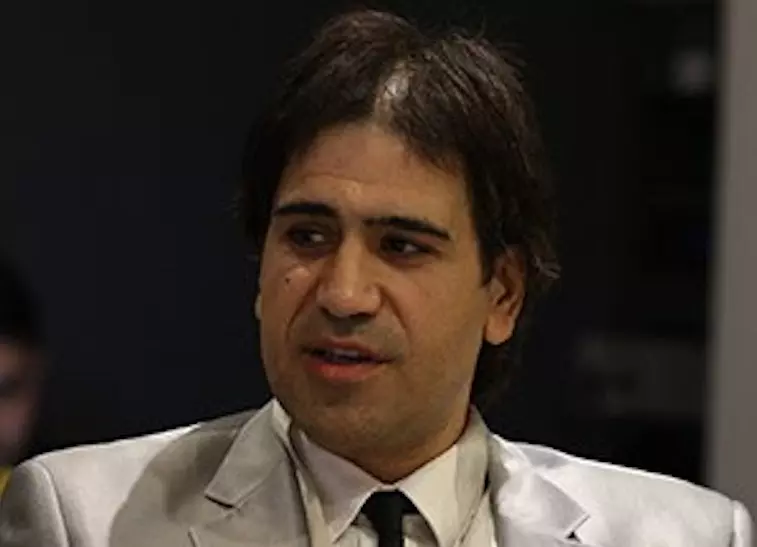
In recent years, Gulf states have increasingly sought to diversify their investments beyond the Middle East, eyeing promising opportunities across Africa’s emerging markets. Among these, Nigeria stands out as a nation with immense untapped potential. Nigeria has always been a tale of what could be. It could be Africa’s gem and the country with the most potential for international investors – including those in the Gulf – if it addresses major impediments to growth. Now, key opposition voices are planning bold reforms to turn the tide of years of underinvestment in a bid to finally capitalize on Nigeria’s true potential.
Home to the fastest-growing population in Africa, with an average age of just 18, Nigeria’s entrepreneurial spirit is matched by few others. It follows only Egypt and South Africa in terms of African start-up funding, with Lagos a major continental hub for fintech and home to unicorns like Moniepoint valued at over $1 billion. Last year, Google was the latest major tech company to invest a sizeable sum in the company (over $110 million).
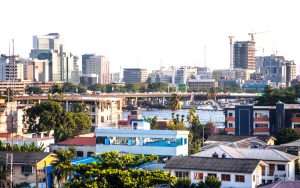
Throughout the country, there are other similar investment opportunities. Common challenges, including food and energy insecurity, have in places been solved by innovative solutions with technology at their core. Nigeria’s most funded agritech company, ThriveAgric, for instance, supports almost one million smallholder farmers with access to finance, technology and markets for their products. It aims to reach 10 million by 2027. This tech-savvy population, if properly supported, could prove a valuable economic partner for decades to come.
Despite its vast potential, Nigeria has for years been stuck in an endless cycle of stagnation, evidenced perhaps most clearly by a more than decade-long decline in foreign direct investment (FDI) as overseas investors have been put off by excessive bureaucratic red tape and growth barriers, including limited financial sector modernization and government corruption.
President Tinubu has, in recent months, tried to court Gulf investment, undertaking several recent visits to the region, which failed to generate investment pledges on the scale required for Nigeria’s future success. A $1.2 billion Saudi investment pledge, for instance, lags significantly behind the Kingdom’s USD$5 billion pledge for projects in South Africa.
For Nigeria to thrive, it must work to ensure greater FDI inflows from around the world. It should look to prioritize development strategies that result in long-term Gulf investment commitments. Only through significant reforms can the conditions be laid for game-changing pledges.
Saudi Arabia alone has committed to invest $41 billion in Africa over the next decade. The United Arab Emirates (UAE) has become the continent’s largest overall investor with total inflows exceeding $60 billion. Nigeria cannot afford to be left behind.
Recent Nigerian governments have failed to grapple with mounting challenges including those exacerbated by external factors including conflicts and the global pandemic. The country has struggled to create the foundations for lasting economic success, underinvesting in its young population.
Leading talent in sectors including fintech and agribusiness could generate high yield return while also aligning with growth strategies by Gulf leaders including Saudi Arabia and the UAE. There exist significant synergies with the Arab world, including similar challenges like tackling food security and diversifying economies away from fossil fuels.
Nigeria should be a priority market for foreign investment. Yet at present, global investors remain deeply concerned about its conditions which are not conducive to growth, namely corruption.
While the World Bank recently expressed cautious optimism about Nigeria’s economic landscape, one must look past the headlines. In reality, everyday Nigerians are not experiencing the benefits of supposed government reforms. The Tinubu administration is struggling to deal with the task at hand.
Stubborn inflation – forecast to remain steady at 22.5 percent in 2025 despite government projections of 15 percent – has resulted in a major cost-of-living crisis. Over 80 million young Nigerians remain unemployed, with about 1.7 million graduates leaving Nigeria’s universities and polytechnics every year with limited opportunities awaiting them. Many move abroad in search of a better future.
If Nigeria is to realize its true potential, it needs to first fix its inherent problems. This requires fresh and perhaps out-of-the-box thinking.
At the same time, systemic corruption turns away potential economic support and shows few signs of slowing despite recently introduced reforms. It is something so entrenched that ultimately only an outside party may be able to reverse the tide, an emerging global trend.
It should come as no surprise, therefore, that senior opposition figures within Nigeria are looking to challenge the status quo.
Prince Adewole Adebayo, leader of Nigeria’s Social Democratic Party, has been one of the most vocal. He has positioned himself as an anti-corruption and pro-business champion while stressing the need to address poverty and core challenges in order to attract greater foreign investment.
In a recent interview, he stated that ‘people are growing tired of hearing about Nigeria’s vast economic potential’, adding that there exists ‘clear systemic issues which few in positions of authority are willing to fix’. Such remarks perfectly capture Nigeria’s current problem.
Too many talk endlessly about the country’s rich potential driven by its young, entrepreneurial population. Yet those in positions of authority have for too long benefited from the unfair system in place, content with a rooted culture of corruption and underinvestment.

It will take an all new, fresh thinking government to implement the measures needed to turn the tide. To attract greater investment, a new government must pursue bold tax reforms, be committed to eliminating corruption across the entire country, and must enhance security prospects.
At the same time, it should pursue a new approach to infrastructure development, prioritizing cross-country connectivity and greater investment in vital public services including education and healthcare. This could be achieved through the creation of a new wealth fund supported by both government and foreign investment as well as the introduction of multisector apprenticeship schemes for recent graduates.
Separate green funds and further initiatives could also be developed, capitalizing on Nigeria’s renewable potential and Gulf expertise in clean energy development. The likes of Kenya, Zimbabwe and Morocco, among others, have already seen large benefits from such investment. Nigeria could follow.
These are just some examples of areas foreign investors can grow excited about. They represent well-trodden paths which have yielded positive socioeconomic impacts elsewhere in Africa and could be at the heart of pledges to invest growing sums across the African continent.
If Nigeria is to realize its true potential, it needs to first fix its inherent problems. This requires fresh and perhaps out-of-the-box thinking – highlighted by the likes of Adebayo – before the right partners can be approached.
READ: Martin Jay: Gaza’s so-called ceasefire masks ongoing suffering
Opposition members standing primarily on platforms which champion the elimination of rampant and entrenched corruption, poverty and a culture of underinvestment understand the preconditions required for long-term economic growth and prosperity.
With Nigerian elections just two years away in 2027, there is light at the end of the tunnel and plenty for international investors to be excited about.
The views expressed in this article belong to the author and do not necessarily reflect the editorial policy of Maghrebi.org. Dr. Majid Rafizadeh is a Harvard-educated Iranian American political scientist. you can follow him on X: @Dr_Rafizadeh.
If you wish to pitch an opinion piece please send your article to grace.sharp@maghrebi.org
Want to chase the pulse of North Africa?
Subscribe to receive our FREE weekly PDF magazine








